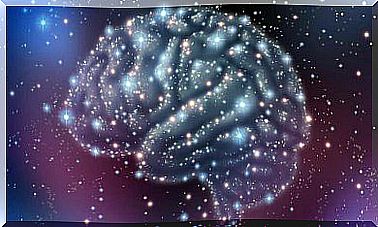Conscious Eating: Improve Your Relationship With Food

Many people face the eternal dilemma of deciding whether to go on a diet or get carried away. Conscious eating helps us to deal with this and improve our relationship with food.
In many cases, an unbalanced diet is the result of a very busy life that extends into rest periods. We often completely lose the sense of relating to our food and our bodies.
We notice this when problems arise with being overweight or feeling unwell after meals.
That’s when we question ourselves about stopping eating certain foods and starting a diet to lose a few pounds. Guilt and internal reproaches appear for the foods we eat… and for those we fail to eat.
Conscious eating is not just about what we eat, but also how we eat. There is little point in changing the type of food if we eat it too quickly, without chewing enough and without allowing our senses to enjoy the moment and the experience of eating.

overeating
Our brain needs approximately 20 minutes to receive and analyze the satiety signals that the stomach sends. When we eat too fast, it is likely that we will end up eating more than necessary.
Chewing and swallowing is not eating consciously. The act of eating is always accompanied by emotional states. When we eat consciously, the emotional state is one of satisfaction.
However, when we eat unconsciously, the emotional state that develops is usually one of discomfort, feeling of a very full stomach and lethargy.
A study by Langer, Warheit and Zimmerman indicated that after each meal, 44% of people thought they had an overweight problem. More than 45% felt guilty after eating.
the four questions
To begin embracing mindful eating in our lives, let’s work on attention and create a continuum of consciousness. The more awareness of our relationship with food, the more possibilities we will have to improve in this regard.
You need to be aware of what you want and should eat before, during and after the eating process. To do this, ask four simple questions.
- Is my satisfaction with the way I relate to food high or low?
- Is the level of pleasure provided by food during the eating process high or low?
- Do I eat normal portions of food or do I usually choose a larger portion than normal?
- When I finish eating do I feel happy or uncomfortable?
When we exercise our attention in answering these questions, we begin the process of mindful eating. To compromise awareness and attention is to open up to a healthier diet.
On the other hand, when our consciousness and our attention are distracted, we lose control over what we eat. There is an exception, which is when we plan exactly what we are going to eat and also how much we are going to eat.
emotional hunger
Our way of eating is very influenced by our sociocultural environment, but it is also very intimately influenced by our emotions. How we develop the ability to regulate our emotions can greatly help us regulate the habit of mindful eating.
We eat emotionally when we are not able to differentiate emotions, both pleasant and unpleasant, from the actual feeling of hunger.
In addition, the low tolerance for emotional discomfort drives people to eat unjustifiably and unconsciously, which is popularly known as “robbing the fridge”.
Food as a coping resource to deal with emotions is an incorrect path and completely removed from conscious eating. Food is neither a relief nor an entertainment, much less an anxiolytic or depressive.
This way of using food is nothing more than a fast way that the brain uses to obtain a reduction of some kind of vital anguish. The problem is that these attitudes end up becoming habits.

Develop awareness, develop conscious eating
Regular practice of self-observation helps us to better handle our conscious eating skills. It’s also a way to avoid self-sabotage. The solution is to build new eating habits based on awareness.
It’s critical to start asking yourself whether the hunger we feel is a physical hunger or simply an emotional hunger. We must start to identify our emotions and deal with them properly.
We need to exercise the habit of eating at the right times and not eating out of time for reasons of any kind. We must make a conscious increase in other pleasurable activities that are not related to food.
Mindful eating is a skill that can be acquired and trained. When we stop eating emotionally and start eating consciously, we also feel better because we’re taking care of ourselves; we realize that we have control over what we eat and therefore control over our bodies.









